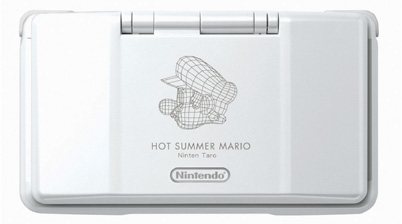More time on Net than papers
The average amount of time people in Japan spend each day browsing the Internet has exceeded that spent on reading newspapers for the first time, according to survey results released Wednesday.
The average amount of time people in Japan spend each day browsing the Internet has exceeded that spent on reading newspapers for the first time, according to survey results released Wednesday.
Tokyo’s Shinagawa-ku has taken an extra step to protect children in the ward by deciding to give them “crime prevention cell phones” that allow them to alert authorities if they are in danger and make emergency calls. Trials of the alert system the phones use will start at the beginning of next week. Plans have been made to supply the devices to all 12,000 elementary school students in the ward within this year.
Mobile phones may be an all access pass to fun for most of us but for the physically or visually impaired it’s one more ‘no entry’ barrier. Vodafone Japan along with TU-KA Cellular in Tokyo, Kansai, and Tokai are making mobile services a little easier for people with disabilities through a new free directory service [.pdf]. Dubbed ‘Smile Call’ subscribers punch in 104 to connect to a directory service operator who can assist them in placing calls. Generally 104 calls through mobile lines are fee-based but this system developed with Japan Multimedia Services Corporation creates free access to registered users. After completing the registration process, subscribers punch in 104, identify themselves to the operator and once their name has been verified, proceed with questions and assistance.

Nintendo confirmed plans to set up around 1,000 wireless LAN access points to support online gaming for its dual-screen handheld DS system. The Japanese-language Nikkei Business Daily reported the Kyoto-based game giant planned to push connectivity in conjunction with the release of new online games. In a telephone call with WWJ a Nintendo spokesman confirmed that though no press release had been issued, those statements were made at a company event. Access points will reportedly be set up in game stores, electronic boutiques, etc., by the end of this year.
Sanyo Electric Co., seeking to recover from a record loss last year, said it will resume supplying handsets to NTT DoCoMo Inc., Japan’s biggest mobile phone operator, for the first time since 1999. Sanyo will provide a handset for high-speed, or third- generation, service to Tokyo-based DoCoMo this year, said company spokesman Akihiko Oiwa, confirming a Nihon Keizai newspaper report. The Osaka-based company expects to ship 1 million of the handsets annually, and supply two other models starting next year.
Vodafone K.K. announced today that for the third time it will sponsor Vodafone Mobile Eco School 2005, a contest where high school students use mobile handsets for scientific research purposes. Vodafone Mobile Eco School is a Vodafone K.K.-sponsored programme that lets students freely conduct research on ecology, science and environment themes with the latest Vodafone K.K. handsets (*Vodafone K.K. plans to lend Vodafone 902T handsets for research purposes. Communications made for research purposes will not be charged.) The Grand Prix team will receive a prize of 200,000 yen and a field trip to the United Kingdom. The field trip is scheduled to include exchange with U.K. high school students and other cultural activities. Applications for 3rd Vodafone Mobile Eco School to be accepted from 1 June.